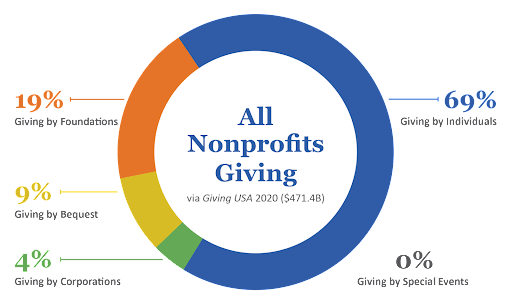Partner with a Nonprofit Company to Improve Your Organization's Success
Partner with a Nonprofit Company to Improve Your Organization's Success
Blog Article
Recognizing the Necessary Duty and Impact of a Nonprofit Agency in Neighborhood Development and Support Services
Not-for-profit firms offer as crucial stimulants for neighborhood development and assistance solutions, addressing the multifaceted demands of marginalized populaces. The landscape of nonprofit job is fraught with obstacles and possibilities that can substantially affect their effectiveness.
Meaning of Nonprofit Agencies
Nonprofit companies are frequently defined as companies that operate primarily for objectives aside from creating revenue for owners or shareholders. These entities focus on addressing social, cultural, environmental, or community requirements, and they reinvest any type of surplus revenues back right into their mission-driven tasks. Nonprofits may take different kinds, including philanthropic companies, structures, advocacy groups, and social enterprises, each with functional structures and unique structures.
The leading principle of a not-for-profit agency is its commitment to offering the public rate of interest. This devotion usually materializes in a broad variety of solutions, from education and learning and health care to housing and environmental conservation. Nonprofits normally depend on varied funding sources, including contributions, grants, and subscription charges, to support their initiatives.
In order to preserve openness and accountability, nonprofit companies are required to stick to certain policies and reporting requirements. This oversight is necessary for constructing trust with stakeholders, including donors, volunteers, and the neighborhoods they offer. By focusing on social effect over financial gain, not-for-profit companies play a vital function in fostering community development and attending to pushing societal difficulties, therefore contributing considerably to the general wellness of culture.
Trick Functions in Area Development
Area advancement prospers on the active engagement of different organizations, with not-for-profit companies playing a critical function in fostering lasting development and enhancement. These companies act as vital facilitators, connecting spaces between area demands and readily available resources. Among their crucial functions is to determine and evaluate regional requirements via neighborhood engagement, making certain that growth campaigns are appropriate and tailored to the specific context.

Campaigning for is another critical function of nonprofits, as they stand for the rate of interests of the neighborhood in policy conversations, pushing for equitable access to sources and solutions. By increasing awareness on essential problems, they contribute to educated decision-making at various degrees. Eventually, the complex functions of nonprofit agencies in neighborhood advancement not just promote prompt enhancements however likewise prepared for long-lasting sustainability and strength within neighborhoods.

Influence on Susceptible Populations
Exactly how do not-for-profit agencies specifically resolve the requirements of prone populaces within community growth initiatives? Not-for-profit firms play an important duty in identifying and addressing the unique challenges encountered by marginalized groups, consisting of low-income households, the elderly, and people with disabilities. By tailoring their services and programs, these organizations can provide crucial support that fosters strength and self-sufficiency.
As an example, lots of nonprofits offer access to food support programs, housing assistance, and healthcare solutions that directly alleviate the problems dealt with by prone populations. In addition, they often function as advocates, magnifying the voices of those that might otherwise go unheard in plan conversations. Via neighborhood outreach and education, nonprofits empower individuals with the understanding and sources necessary to browse complex systems and protect their civil liberties.
Furthermore, nonprofits take part in capacity-building initiatives that boost the skills and possibilities of susceptible individuals, thereby promoting social equity. Their commitment to inclusivity makes sure that neighborhood growth initiatives are detailed and receptive to the diverse requirements of all residents. In recap, not-for-profit companies are important in alleviating the challenges encountered by at risk populaces, promoting community cohesion, and driving sustainable advancement.

Collaboration With City Government
While several obstacles in community advancement call for concerted efforts, cooperation in between neighborhood federal governments and not-for-profit firms is vital for creating efficient options. This collaboration allows for the merging of sources, proficiency, and networks, which can considerably improve solution distribution and community engagement. Not-for-profit companies commonly have direct understanding of the needs and aspirations of local populaces, enabling them to educate government policies pop over to this site and programs efficiently.
In addition, neighborhood federal governments can offer essential support in terms of funding, facilities, browse around this site and governing structures that help with the job of nonprofits. This synergy not only fosters an extra detailed method to resolving neighborhood concerns but likewise guarantees that initiatives are based in the truths of the populations they aim to serve.
Joint campaigns, such as community wellness programs, academic workshops, and housing tasks, illustrate the concrete advantages of this collaboration. By straightening their approaches and goals, neighborhood governments and nonprofit firms can produce lasting effects that enhance the lifestyle for citizens.
Challenges and Opportunities Ahead
The collaboration between nonprofit firms and local federal governments, though valuable, is not without its difficulties. One considerable obstacle is the often limited financing offered for nonprofit organizations, which can impede their ability to carry out detailed community programs. This financial restraint can bring about competition for resources, creating tension amongst various firms striving to attain comparable objectives. In addition, varying top priorities in between nonprofits and federal government entities can result in misaligned objectives, complicating collective efforts.
Nevertheless, these challenges likewise present special chances. Nonprofits can take advantage of their grassroots links to recognize community requirements that may be ignored by government agencies, making certain that services are tailored to the regional population. By promoting cutting-edge collaborations and discovering alternate financing sources, such as social ventures or grant possibilities, nonprofits can boost their sustainability and influence.
Furthermore, the growing recognition of the significance of collective influence motivates an extra incorporated technique to neighborhood development. This develops a productive ground for nonprofits to promote for policy changes that attend to systemic problems. By welcoming both difficulties and possibilities, nonprofit firms can proceed to play an essential function in advancing neighborhood advancement and support solutions, eventually benefiting the neighborhoods they serve.
Verdict
In recap, not-for-profit agencies serve as vital drivers for neighborhood advancement and support services, effectively resolving the requirements of at Going Here risk populations. Despite facing challenges, the possibility for growth and advancement within the not-for-profit market remains significant.
Not-for-profit firms offer as essential stimulants for area advancement and assistance solutions, dealing with the complex requirements of marginalized populaces. Eventually, the multifaceted functions of nonprofit firms in area advancement not just promote immediate enhancements however also lay the groundwork for lasting sustainability and durability within communities.
While many obstacles in neighborhood growth need concerted efforts, cooperation in between not-for-profit firms and regional federal governments is vital for creating reliable services. By accepting both difficulties and chances, not-for-profit companies can continue to play an essential function in progressing community growth and support solutions, ultimately benefiting the neighborhoods they serve.
In recap, not-for-profit companies serve as essential catalysts for neighborhood advancement and assistance services, successfully attending to the needs of susceptible populaces. - nonprofit agency
Report this page